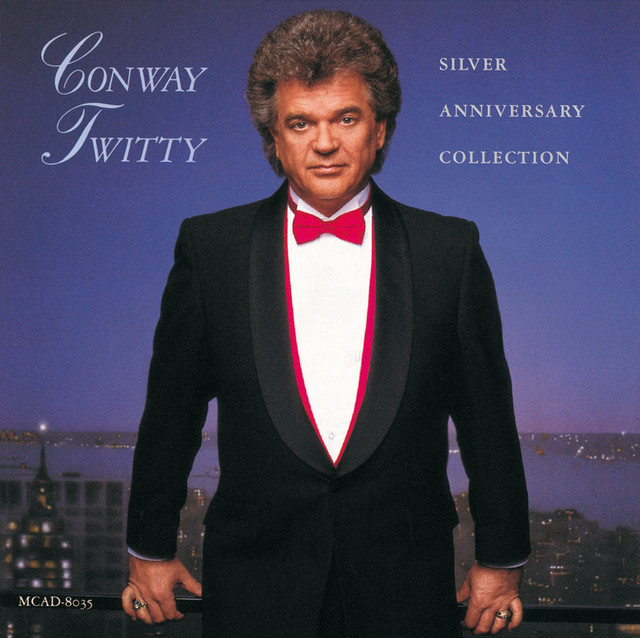
An Intimate Look at Love, Memory, and the Passage of Time
The year was 1981, a time when country music was perfectly poised between its traditional roots and a budding pop sensibility. Amidst this backdrop, the legendary Conway Twitty—a name synonymous with chart dominance and emotionally resonant ballads—released a song that would become a signature piece, both for its sound and its sentimental depth: “Tight Fittin’ Jeans”.
Released from his album Mr. T, this evocative track quickly captivated listeners, ascending to the coveted number 1 position on the Billboard Hot Country Singles chart. For many, it wasn’t just another chart-topper; it was an instant classic, a song that seemed to bottle the sweet ache of a memory too beautiful to fully forget. Its success cemented Twitty’s position as one of the genre’s most consistent hit-makers and a master storyteller.
The story woven into the lyrics of “Tight Fittin’ Jeans” is one of those timeless, chance encounters that lingers in the mind long after the moment has passed. The narrator, a man perhaps a little world-weary and certainly reflective, is sitting in a somewhat upscale, dimly lit bar—the kind of place where a drink is as much for company as for consumption. The atmosphere is one of polite sophistication until a woman walks in, instantly commanding the attention of the room. She is beautiful, dressed elegantly, and clearly from a world of privilege. Yet, the moment she orders her drink, the narrator recognizes a flicker of something familiar, a past life buried just beneath the surface of her polished exterior.
His eyes immediately catch the slight, almost imperceptible way she crosses her legs, a move that only the right kind of country girl—one who grew up on hay bales and back roads—would instinctively make. This tiny gesture cracks open a floodgate of memory for the narrator. He imagines her past, seeing her not in the designer dress she wears now, but in a simple shirt and a well-worn, pair of tight fittin’ jeans. These imagined tight fittin’ jeans become the central metaphor of the song, representing her authentic, unburdened past—a simpler time of youth, innocence, and perhaps a lost love, possibly even the narrator himself.
The true genius of “Tight Fittin’ Jeans” lies in its meaning. It’s a profound meditation on how people change and evolve, yet simultaneously carry the indelible marks of their origins. The woman has moved on, seemingly shedding her past for a life of comfort and social standing. But the narrator’s keen observation suggests that a person’s true self, the girl in the tight fittin’ jeans, is never truly gone. It’s a nostalgic reflection on the path not taken, a poignant reminder that while the trappings of success and time can alter appearances, they can never fully erase the spirit of where one came from.
For those of us who came of age listening to Conway Twitty, this song is a potent time machine. It evokes the feeling of looking across a crowded room and seeing a face from your past, instantly being transported back twenty years, remembering not who they are now, but who they were—the wild, hopeful youth before life etched its lines upon them. Twitty’s signature smooth, almost conversational vocal delivery, often referred to as “The Twitty Bird’s” bedroom murmur, adds a layer of intimacy and melancholy to the narrative. His voice, warm and deeply expressive, doesn’t judge the woman’s choices; it simply observes and remembers, allowing the listener to share in the quiet, bittersweet moment of recognition.
“Tight Fittin’ Jeans” is more than a country song; it’s a commentary on the universal human experience of confronting a changed past, a quiet acknowledgment that the simplest, most honest moments are often tied to the clothes we grew up in, both literally and figuratively. It remains a cherished classic, holding a special place in the hearts of those who appreciate a story well-told and a memory deeply felt.